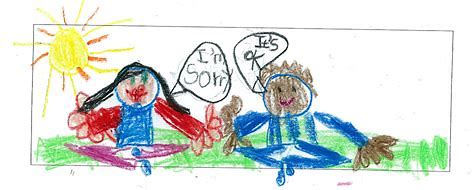One of the six areas of focus of Rotary we don’t seem to talk about as much is peace and conflict resolution and prevention, which happens to be the theme for the month of February. It is often, however, the conflicts that occur throughout the world that are the root causes of poverty, despair, economic hardship and poor health.
Take for instance the major deterrent to polio eradication: the difficulty in vaccinating children in war torn countries. We see these conflicts as well occurring in some form within our own communities with the same results. Rotary International as an organization understands this relationship and therefore is deeply invested in supporting individuals and programs that will develop leaders who are committed to seeking ways toward peace. The path toward peace begins with understanding and respect for the differences that make us unique.
These are the same types of values that are studied in the peace centers supported by Rotary International in association with several major universities across the globe. The mission of these centers is to “empowers, educates, and increases the capacity of peace builders through rigorous academic training, practice, and global networking opportunities.
These Fellows develop the skills needed to act as “leaders and catalysts for peace and conflict resolution both in their communities and around the globe.” As Rotarians we should all be similarly committed to understanding the conflicts that exist in our own society, to speak out when necessary, and to seek solutions that reflect the values of Rotary.
And so it continues - See how Conflict affects our Polio Eradication efforts - read more
Killing of Mother-Daughter Team Shakes Polio Eradication Drive in Pakistan Global Health By DONALD G. McNEIL Jr. JAN. 22, 2018
Two polio vaccinators — a mother-daughter team — were shot dead in Pakistan on Thursday, the first time in two years that the polio eradication drive has been shaken by assassinations.
While tragic, the killings in Baluchistan province will not seriously disrupt Pakistan’s eradication drive, said one of its leaders.
“We are very close to winning the battle,” said Aziz Memon, a textile executive who heads Rotary International’s local polio vaccination efforts.
Last year, Pakistan had only eight confirmed cases of polio paralysis; four years ago, the nation had 306.
The only other country with ongoing transmission of polio is Afghanistan, which had 14 cases last year, most of them in provinces adjoining Pakistan and among Pashtuns, the predominant ethnic group in border areas.
The two countries now coordinate their national vaccination days, in which more than 200,000 part-time canvassers in Pakistan and 40,000 in Afghanistan try to give vaccine drops to every child under age 5.
Two years ago, the blast of a suicide bomber near a polio center in Quetta, the province’s main city, killed a local official and 13 police officers assigned to guard vaccination teams. The Pakistani Taliban claimed responsibility.
The Taliban in Afghanistan has never opposed polio vaccine; hostility to it by some factions of the fragmented Pakistani Taliban has largely faded in the last two years, Mr. Memon said.
But there is persistent hostility between Pakistan’s military and clan militias in some mountainous border areas that have never been fully under government control.
The vaccinators, a 38-year-old woman and her 16-year-old daughter, were each shot in the head by motorcycle-riding assassins, Pakistani authorities said. Mr. Memon said he would go to Quetta to console and compensate the widower, a truck driver with six other children. In the past, Rotary has given the families of murdered vaccinators thousands of dollars.
PP Ron Ron Nethercutt D 3790 Rotary Info Guy RC Mabalacatds




